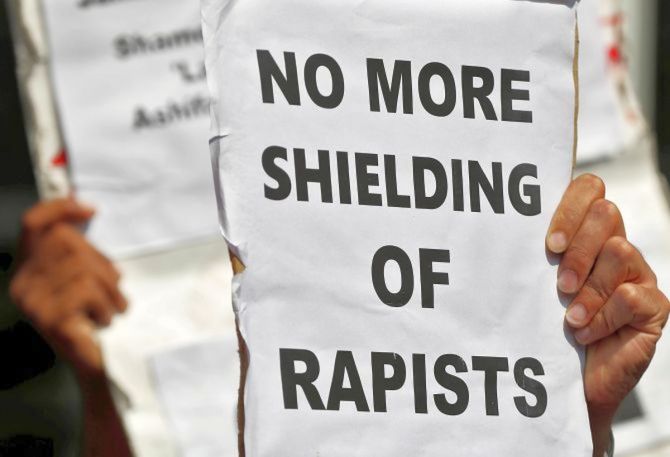The Maharashtra government on Wednesday presented in the state Assembly a report of the joint committee of the state legislature on a bill that provides for strict punishment, including death penalty, for crimes such as rape, acid attack, and derogatory material on social media against women and children.

State Home Minister Dilip Walse Patil presented in the Lower House of the legislature the joint committee's report on the Shakti Criminal Laws (Maharashtra Amendment) Bill, 2020 that specifies the recommendations of the panel.
The bill, which is modelled on the Disha Act in Andhra Pradesh, was first tabled in the legislature during the winter session in December last year. However, the government had referred it to the joint committee after that.
The joint committee held 13 meetings and later submitted the recommendations, the minister said.
The draft bill provides for capital punishment for crimes against women and children, specifies deadline of 30 days to complete the probe since the day the complaint in such cases is lodged and puts the onus on social media platforms as well as internet provider companies to share the data for police investigation.
He said that as per the committee's recommendations, the police probe in such cases should be over within 30 days and in case it does not happen, another 30 days can be given after specifying the reasons from Special Inspector General or Police Commissioner.
The recommendations say that if the officer probing the offences against women and children demand sharing of the data, it should be done within seven days, otherwise punishment will be awarded for the failure on the part of social media platforms or internet/mobile data providers.
Failure to do so may attract imprisonment of up to three months or/and fine worth Rs 25 lakh.
'As per the recommendations, Section 326 of the Indian Penal Code (IPC) applied in case of acid attacks will be amended to make provision of minimum 15 years to maximum life imprisonment to the guilty along with monetary fine.
'The expenditure of plastic surgery and face reconstruction operations will be taken care from the monetary fine to be charged on the guilty,' Walse Patil informed the House.
The earlier version of the bill had scrapped the provision of anticipatory bail to individuals accused of assault on women.
The committee cancelled this provision after taking opinion from senior lawyers.
It also made the provision of minimum one year to maximum three years of imprisonment and Rs 1 lakh fine on those who make false complaints of sexual assault.
A new Section 354E of the IPC has been proposed to take action against those outraging the modesty of women, men and transgenders through electronic or digital means.
Section 100 of the Code of Criminal Procedure (CrPC) will be amended, as per which two social workers granted by the state government's Women and Child Welfare Department or two public servants can be taken as independent witnesses in case of sexual harassment case, he said.











 © 2025
© 2025